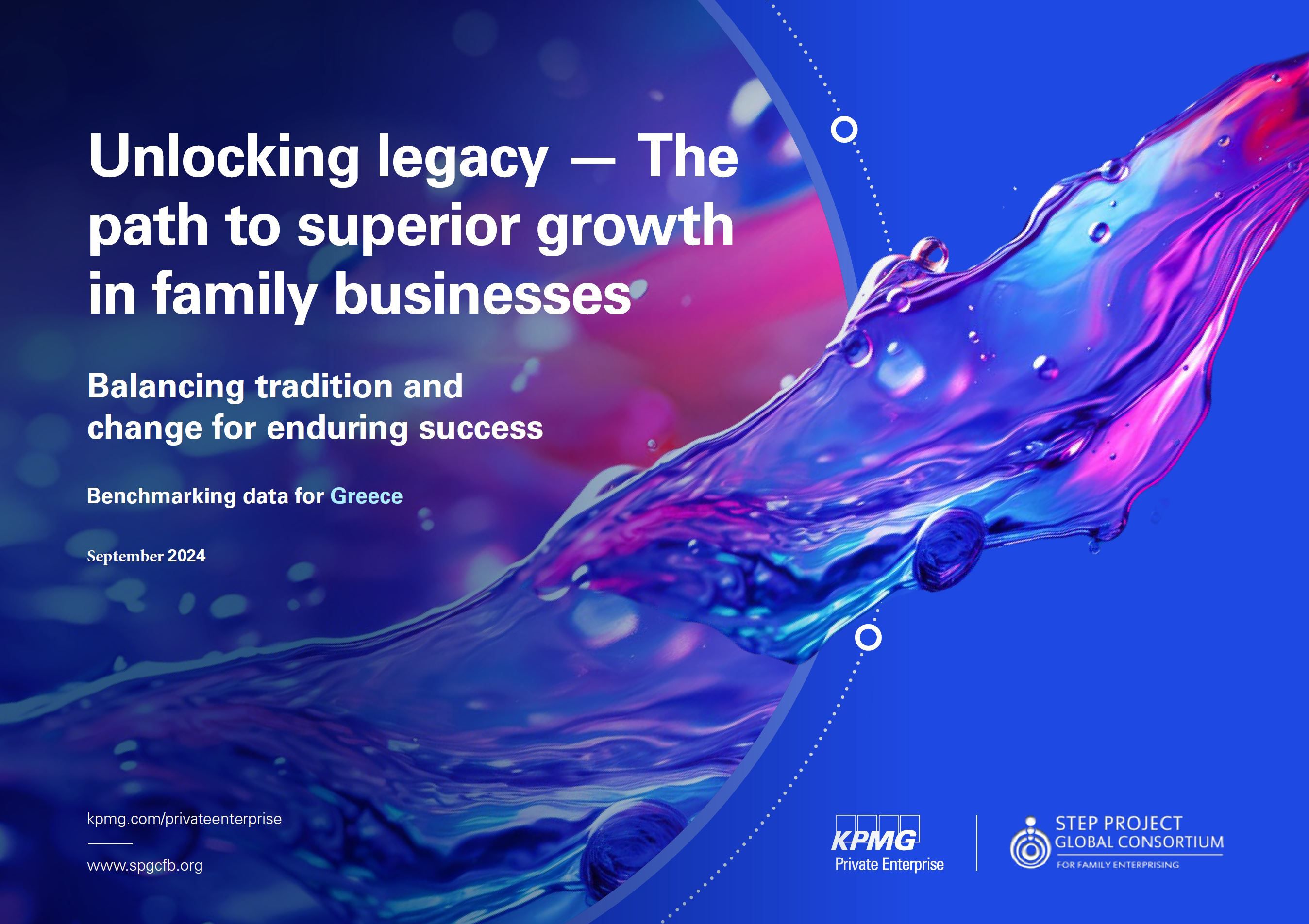Legacy is a powerful force behind the sustained growth of family businesses. It connects generations, shapes long-term vision, and serves as a source of identity and inspiration.
Based on a survey of 2,683 family business leaders from 80 countries, regions and territories, the STEP Project Global Consortium and KPMG Private Enterprise report reveals an important link between the strength of a family business’s legacy and its long-term business performance.
But while legacies serve as a source of identity and inspiration, the report reveals how they can also have the potential to hinder innovation and change. This is the "legacy paradox": the challenge of balancing traditional values with modern business strategies to build a legacy with future generations in mind.
Find out why legacy matters with key takeaways on:
- How the family’s legacy is a high-value asset that contributes to superior business and sustainability performance.
- Why legacies are important for connecting the past, present and future in making strategic decisions.
- How strong legacies contribute to socioemotional wealth and transgenerational entrepreneurship.
- Why it’s important to recognize that legacies may become liabilities if they are too entrenched in tradition and stand in the way of innovation.
of family businesses with high legacy scores reported stronger business performance compared to competitors.
with high legacy scores reported high sustainability results.

Unlocking legacy — The path to superior growth in family businesses
Balancing tradition and change for enduring success
Download Benchmarking Data Report for Greece (PDF, 2.7 ΜΒ) ⤓
Uncover the strength of your legacy and where it could lead you – Introducing the legacy matrix
The legacy matrix1 is an outcome of extensive STEP Project Global Consortium research, brought to life through the 2024 Global Family Business survey data, which measures the strength of business families’ transgenerational entrepreneurship and legacy scores. When these two factors were combined, four groups of family businesses sharing similar characteristics and features were identified.
Companies in the survey that reported the highest legacy and transgenerational entrepreneurship scores also reported significantly higher financial and sustainability results, which reinforces the important relationship between the strength of legacy and transgenerational entrepreneurship on the performance of family businesses.
Applying the legacy matrix to your family business may be an important first step in assessing the strength of your legacy and how it may be having an impact on the performance of your business.
Take the assessment
Why are family businesses focusing more on their legacies now?
As greater numbers of younger generation family members are beginning to enter their family businesses, there is an increasing need to focus on the future by:


Unlocking legacy — The path to superior growth in family businesses
Balancing tradition and change for enduring success
Download Benchmarking Data Report for Greece (PDF, 2.7 ΜΒ) ⤓
Connect with us
Related content
Footnote:
1 Calabro, A. (2023). Building and sustaining the family business legacy. Keynote presentation at the KPMG MESAC Global Family Business Summit, Bahrain.







